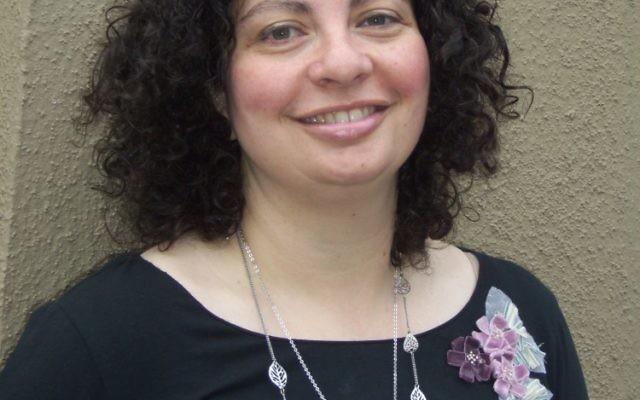Basking in the Light of Many Traditions
By Rabbi Ruth Abusch-Magder | rabbiruth@gmail.com
In 1777 the first night of Chanukah fell, as it does this year, on Dec. 24. But American Jews, few in number though they were, were not worrying about Chrismukah. They had bigger things on their mind.
There was war all around them. The colonists had taken on the British and were battling for survival.
On one particularly cold piece of land in Pennsylvania, there was talk of mutiny among the revolutionary forces. There was barely enough food to eat or materials to clothe and house the ragtag assembly of men.
On Christmas Eve, as Gen. George Washington walked among his troops, he came across a soldier who had two small lights burning. When Washington inquired as to the nature of the flames, the Jewish soldier told him of the few Maccabees, their fight against the mighty Greek empire and the miracle of Chanukah.
Faced with his own bleak military prospects and supplies that might not last until they could be replenished, Washington took comfort in the Chanukah story, seeing in it a sign of hope for all Americans.
Though Chanukah did coincide with Christmas the year that Washington and his forces camped at Valley Forge, which did likely include some Jewish men, there is debate as to whether this encounter took place.
But that does not diminish the larger truth.
This story places American Jews in the central creation narrative of the United States. It fuses the American story with the narrative of the Jewish people: chosen people shedding light onto the nations, bringing hope into dark places.
It reminds us of the universal power of our unique Jewish story.
This is the power of the Jewish experience in America. In this country, which celebrates diversity, we have been able to bring who we are into the collective space and share it to help drive away the darkness.
My son the Army cadet is proud to ask for kosher Army meals; after all, religious freedom is what they are fighting for.
In Billings, Mont., in 1993, the good people of the town gathered together against white supremacists who were attacking Native Americans, blacks and Jews. They fought back by placing paper menorahs in the windows of businesses, churches and homes. The Jewish custom of publicizing the Chanukah miracle became, as Washington predicted, an American miracle.
In ancient times there was some debate as to how to light the Chanukah menorah. Rabbi Shammai said to start with eight candles and take one away each day. Rabbi Hillel said to start with one and each day add another.
The 19th century Iraqi Rabbi Yosef Chayim said Shammai’s approach represents bravery. By contrast, Rabbi Chayim said, Hillel’s approach is one of chesed, lovingkindness.
Explains Sephardic Torah scholar Tamar Zaken: Shammai implies we have to be brave and start with a big blaze. With Hillel, Zaken continues, one act of bringing light into the world inspires another and so on, so that what starts out small eventually grows big.
The custom developed according to the view of Hillel. We start with one and every day light one more. Or, as we read in Wisdom of the Ancestors, another ancient Jewish book of wisdom, one good deed begets another.
Every culture, every race, every religion has light to offer. In a world that so often seems dark, we need to find and build light wherever it is. We can find it often in our own traditions, but, as in the story of George Washington, sometimes, in dark moments, inspiration and hope can come from a tradition not our own.
For that to happen, we need to recognize the light that emanates from all traditions. When we stay in our own circles of light, we are limited in what we can see and what we can do. When we combine our light, building by one light at a time, we can brighten the darkest places with hope and possibility.
In 2016, as in 1777, Chanukah and Christmas coincide. In the light of our celebrations, within our own holidays, let us also look to the light and inspiration of those who celebrate differently because we are all Americans.





comments